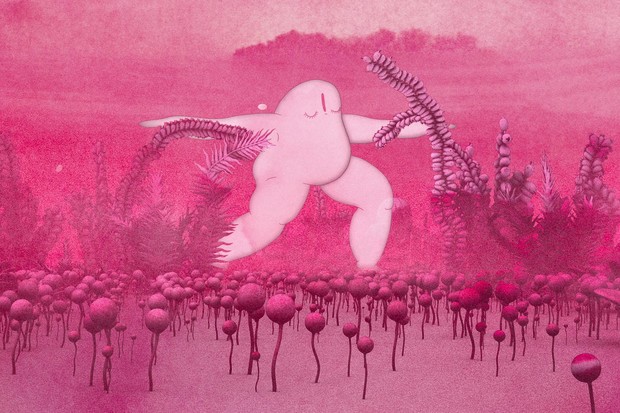GoCritic! Review: The Scent of Beetroot and The People Who Live Forever
- In their unsettling yet effective short, directors Petra Stipetić and Maren Wiese reflect on the consequences of treating death as the worst of diseases

A scientist finds the ultimate cure for death in beetroots, meaning that no-one has to endure the trouble of dying anymore. Tikhon Fedorov, the doctor whose genius the whole human race has to thank, believes death prevents people from experiencing what life should be, in his eyes: an eternal moment that repeats itself over and over again, with everything happening all at once.
It’s easy, here, to draw a parallel with this year's Oscar juggernaut Everything Everywhere All at Once. At a time when Hollywood is struggling to offer up anything other than pointlessly convoluted projects – i.e. Marvel movies – the audience seems inclined to accept any kind of incoherence. But Petra Stipetić and Maren Wiese's The Scent of Beetroot and The People Who Live Forever (Vom Duft der Roten Beete und den Menschen, die ewig leben) tries, in its 12 minutes, to make us imagine a world where rules are subverted at their very root.
Following the proliferation of this miraculous vegetable, immortality itself becomes a disease from which mankind can never recover. Tikhon and his rat - the first creature to benefit from his findings - live in a laboratory. From there, the doctor observes people using floating oval spheres. He’s sure at this point that people are happy, but the reality is quite different: nothing matters to anyone anymore since time is no longer limited. Colour-wise, everything has turned a differing shade of magenta, a specific choice made by Stipetić and Wiese to convey a disquieting sense of standardisation.
This homogenous environment becomes a prism through which we glimpse the perspective of a more youthful Tikhon: his memories are mostly monochrome, each component (past or present) presented through a filter of infantile stylisation. Humans have become altered to the point that they now are unrecognisable, weirdly shaped and without purpose.
Time is undoubtedly the directors’ main concern here. Their work is not just focused on an error, or a series of errors, but on what can happen if these mistakes drag on for too long. As Aristotle said, form is substance, not the other way around. In this sense, it is as though external changes experienced by individuals all over the world leave them fundamentally unable to cope with such radical transformations. Once they reach the point of no return, the accumulation of years becomes simply irrelevant. The same goes for Tikhon, who firmly believes it is just a matter of time and that eventually the human race will understand. How very wrong he is.
Did you enjoy reading this article? Please subscribe to our newsletter to receive more stories like this directly in your inbox.















